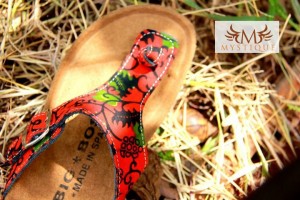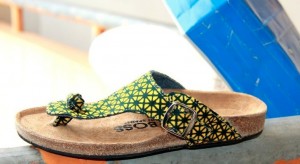Canada’s Prime Minister Stephen Harper just wrapped up a visit to two African countries at polar ends of the development spectrum.
On October 9th, he arrived in Senegal like Santa Claus bearing $20 million worth of gifts to assist in food distribution in areas hit by famine. This is in addition to the $57 million the government has directed towards humanitarian relief for drought victims. The sacks of cash ‘Santa Claus’ is giving to Senegal is a signal of Santa’s approval of the country’s progress.
Since Independence in 1960, this West African country which used to be a major depot for transatlantic slavery, has enjoyed bonafide political stability which has made it a popular holiday destination for tourists around the world. Although Senegal is a predominantly Islamic country, women have made significant strides in becoming decision makers in politics and the economy. The Senegalese are politically savvy and are known for delivering shocking political upsets to governments that they deem irresponsive to their needs. President Abdoulaye Wade got a taste of this trait when he altered the constitution to run for a third term in office. In March, Senegal raced to the polls in record numbers and delivered a resounding defeat to Wade by electing opposition leader Macky Sall as the new President of Senegal. The power of democracy prevails in Senegal.
As Santa Stephen Harper toured the capital, Darkar, he continued to shower the country with presents; $5 million to support youth development, $7 million to improve map technology and $70 million from CIDA. Though there are still gaps in literacy, access to health care and corruption, Senegal is a model country in Africa and the message from Santa was clear: Rewards are reserved for they that have been ‘nice’.
The next stop for Santa was the Democratic Republic of Congo, a country that has been rocked with instability since 1965 when Mobutu Sese Sekoe overthrew anti-colonial freedom fighter Patrice Lumumba from power. After 32 years in office, Mobutu was driven into exile and the Democratic Republic of Congo spiralled into a bloody civil war. An uneasy peace agreement was signed in 2003 and last year, Joseph Kabila was sworn in as President amidst accusations of a rigged election.
Santa Stephen Harper arrived in Kinshasa on October 11th to attend the Francophone summit. His visit was condemned by Canadians like Romeo Dallaire who criticized the Premier for visiting a country that has a notorious record for human rights abuses. But still playing the role of father Christmas, Harper offered a $20 million investment in programs that support responsible and transparent mining of natural resources.
Ironically 2 years ago, when the DRC badly needed international assistance, President Harper refused to increase Canada’s support for a UN mission in Congo. Canada, thus lost an opportunity to curb flagrant human rights abuses and unprecedented level of sexual violence against women. But the country is on the mend, albeit slowly. Addressing a news conference, Mr. Harper made it a point to express his disapproval with the DRC and urged the next summit to be held in a democratic country.
The situation in Senegal and the DRC is a snapshot of Africa. On one hand, you have countries that are building on economic and political stability and then you have others that are trying to find their footing after decades of civil war. Judging by the size of the gift bags, the message from Santa was clear. Reprimand is reserved for the naughty ones.
 The unwavering trend in fashion is still the African wax print. Previously reserved for traditional African societies the Ankara print is now the most remarkable way to make a fashion forward statement. Mystique clothing has honed into this growing trend and introduced an Africa inspired twist on footwear.
The unwavering trend in fashion is still the African wax print. Previously reserved for traditional African societies the Ankara print is now the most remarkable way to make a fashion forward statement. Mystique clothing has honed into this growing trend and introduced an Africa inspired twist on footwear. “At Mystique, we incorporate wax prints and tie & dye cloth to create a range of products which include Afro Birks, Loafers, and flats. We keep our products vibrant and chic and still remain committed to a high standard of quality. Eventhough I am a doctor, I have been motivated by the uniqueness of our Ankara prints to create a business venture that shows the beauty of Africa. In my native Ghana, we have a wide array of designs so the avenue for being creative is limitless. I am always motivated to create something that is comfortable, affordable and aesthetically pleasing.”
“At Mystique, we incorporate wax prints and tie & dye cloth to create a range of products which include Afro Birks, Loafers, and flats. We keep our products vibrant and chic and still remain committed to a high standard of quality. Eventhough I am a doctor, I have been motivated by the uniqueness of our Ankara prints to create a business venture that shows the beauty of Africa. In my native Ghana, we have a wide array of designs so the avenue for being creative is limitless. I am always motivated to create something that is comfortable, affordable and aesthetically pleasing.”